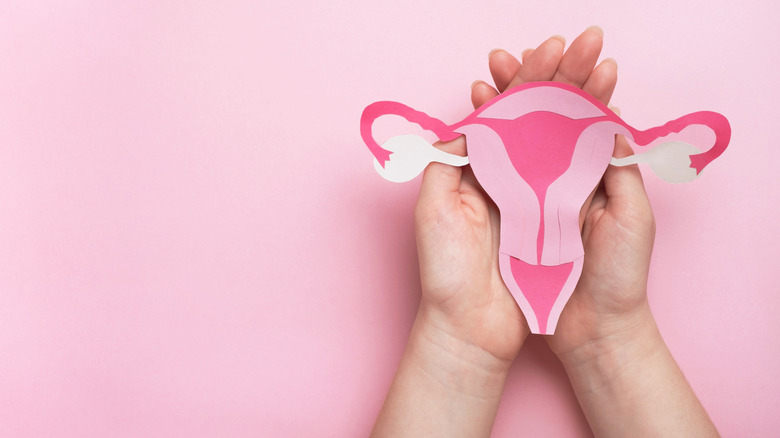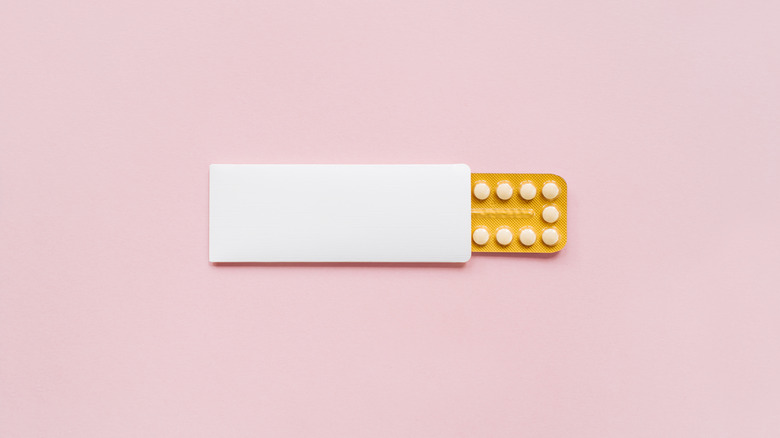What Is A Decidual Cast During Menstruation?
Every proud owner of a uterus knows that having one often comes with a lifetime of little surprises. Whether that's because the female reproductive system really is as mysterious as history has led us to believe — or because it's just grossly understudied — is a topic of much debate (per Big Think). Regardless of the answer, the fact remains that many American women are not armed with enough knowledge about their bodies to fully understand their anatomy and effectively navigate all that comes with it (per INTIMINA).
One of these mysterious medical events to which women are susceptible recently made headlines after an Iowa-based nurse went viral on TikTok. In the video, Madi Swegle explains her recent experience with passing a decidual cast — something she didn't know was possible until after it happened (per Self). Swegle explains that the painful experience was made even more frightening by the fact that she didn't know what was going on. Because knowledge is power, here's everything you need to know about decidual casts.
What is a decidual cast and what are the symptoms?
During a normal period, your body accepts that it will not be housing a baby this month and it begins to expel the lining of your uterus (per U.S. Department of Health and Human Services). This happens gradually — with small bits of uterine tissue being pushed out over the course of four to seven days. However, on some rare occasions, the entire lining is shed and expelled in one fell swoop. This intact piece of tissue — which will exit your body as the exact size and shape of your uterus — is called a decidual cast (per Healthline).
While some cramping is normal during menstruation, the cramping that accompanies the passing of a decidual cast can be severe (per Web MD). Heavy bleeding and abdominal pain are typical with the expulsion of a decidual cast, however once it's out, the symptoms should quickly subside. The cast will look like a uterus-size, triangular, pink mass with a fleshy texture, and will likely be covered in blood and mucus.
What causes decidual casts?
Because there is so little data on decidual casts, doctors are unable to point to a singular reason as to why this phenomenon happens (per Web MD). Some evidence suggests that decidual casts are associated with ectopic pregnancies — a life-threatening, non-viable pregnancy that occurs when an embryo implants outside of the uterus. A 2022 case report published in Lakartidningen suggests that starting or stopping hormonal birth control can also be a contributing factor.
Healthline reports that most women who have passed a decidual cast have not sought medical attention — either because of embarrassment or because they made the decision to manage their symptoms on their own. In her TikTok Madi Swegle mentioned that she didn't seek medical attention because she thought she was just having particularly bad menstrual cramps and feared she was overreacting. Healthline notes, however, that anytime you experience abdominal pain that goes beyond that of your normal period cramps, you should contact your doctor.



